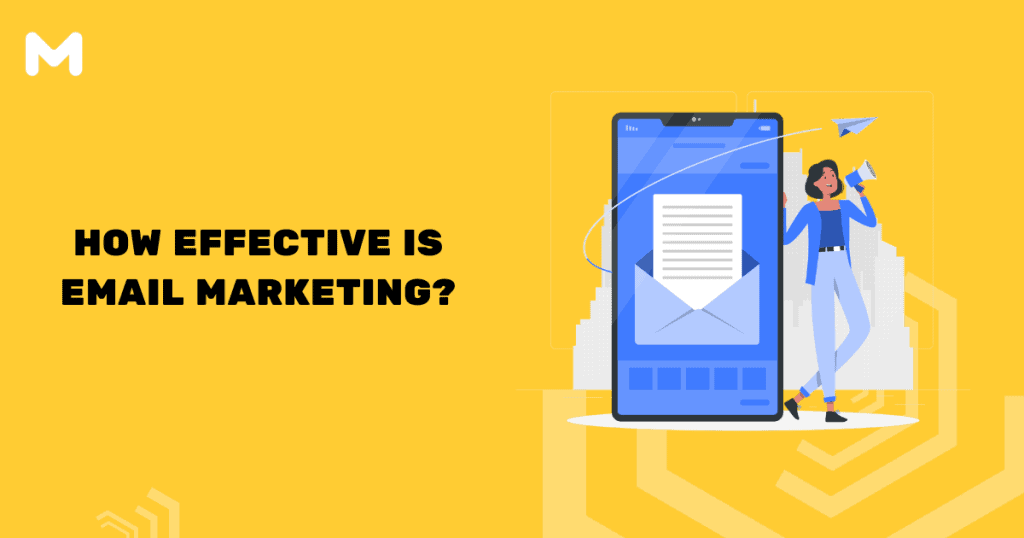Email marketing is one of the most popular marketing strategies out there. But is it still effective? In this blog post, we will be taking a look at what email marketing is and why it is still such an important part of any marketer’s toolkit. We will also be discussing the reasons why email marketing is still an effective strategy and how you can use it to your advantage. By the end of this post, you will have a better understanding of email marketing and its effectiveness.
What Is Email Marketing?
Email marketing is one of the most effective ways to reach your target market. It allows you to personalize messages and make them more appealing to your audience. You can also track performance and see which campaigns are most successful. Email marketing offers a cost effective and efficient way to reach your audience, making it a great choice for businesses of all sizes. Below, we’ll take a look at some of the benefits of email marketing in more detail.
When you send an email, you’re not just sending out information – you’re also building relationships with your customers. Emails can be sent regularly to build brand loyalty and engagement and provide insights into customer behavior by tracking open rates and clicks. This means that you can know what content is resonating with your audience and adjust your messaging accordingly.
Email marketing also offers a quick way to drive traffic to your website or blog. You can use automated emails as part of a lead gen campaign or as part of an ongoing communication strategy. This will help you acquire new customers faster than other methods, such as traditional advertising campaigns or social media posts. In short, email marketing is an effective tool that provides many benefits for businesses of all sizes – so don’t hesitate to start using it today!
Understanding The Benefits And Limitations Of Email Marketing
Email marketing is one of the most effective ways to reach your target market. It’s simple to set up and manage, and it can be used to generate leads and drive conversions. However, email marketing has its own set of limitations that you need to be aware of before starting your campaign. In this section, we’ll outline some of the benefits and limitations of email marketing so that you can make an informed decision about whether or not it’s right for your business.
The benefits of email marketing are clear: it’s easy to set up, it’s cost-effective, and it can be used to generate leads and drive conversions. However, there are also some key limitations that you need to consider when launching an email campaign. For example, email campaigns are limited in terms of how many people they can reach at once. They’re also limited in terms of how long they can last before they’re abandoned or clicked away.
In order to maximize the effectiveness of your email campaigns, you need to understand what works best for your business and what strategies will give you the best results. One common strategy is segmenting your audience based on their interests or demographics (for example, businesses targeting parents might send emails that are relevant to their children). You can also use automated tools like lead capture forms or autoresponder sequences in order for customers who sign up for your emails to start receiving valuable content right away.
Another important factor is measuring the success of your emails by tracking key metrics like open rates (the percentage of people who open an email) and click-through rates (the percentage of people who take a specific action like clicking through a link). This data will help you track which topics are resonating with your audience and which strategies are generating the most results for you.
Finally, keep in mind thatemail marketing is changing constantly – so be sure to stay current with the latest trends so that you’re able to optimize your campaigns accordingly. There are numerous resources available online – like The Email Marketing Association – which will help guide you through all aspects of effective email marketing。. Embracing the ultimate email marketing strategies will not only enhance your reach but also foster stronger connections with your audience. Make it a priority to test and analyze your campaigns regularly, from subject lines to call-to-action buttons, to ensure maximum engagement. By staying proactive and leveraging data-driven insights, you can refine your approach and stay ahead in the ever-evolving landscape of email marketing.
Reasons Why Email Marketing Is So Important
Email marketing is one of the most effective ways to reach your target market. It’s affordable, it’s easy to set up, and it can be automated for maximum efficiency. Email remains a reliable delivery system with high open rates, meaning that your messages will be received by your target audience. Plus, email marketing offers a number of other benefits that make it an important part of any marketing strategy.
One reason email marketing is so cost-effective is because it allows you to reach a large number of potential customers with minimal effort. With automation and analytics in place, you can quickly identify which emails are being opened and which are not. This information provides valuable insights into customer preferences and how best to serve them.
Personalization is another key advantage of email marketing. By sending tailored messages based on customer preferences, you can create a more powerful relationship with each individual. This helps to boost engagement and increase ROI as customers are more likely to come back for future content or contact requests.
Overall, an effective email marketing strategy should include targeted campaigns that appeal to your target audience with relevant content. By doing this, you’ll achieve the highest possible return on investment (ROI).
Is Email Marketing Still An Effective Strategy?
Email marketing is one of the most popular strategies out there, and for good reason. It can help to nurture leads, build relationships, increase brand awareness, and more. However, like with any strategy, email marketing needs to be used correctly in order to be most effective. Here are a few tips that will help you maximize the effectiveness of your email campaigns:.
- Personalization and segmentation are key to successful email campaigns. When you personalize your emails and target your audience specifically, you’re more likely to connect with them and convert them into customers.
- Automating emails can help ease workflow and provide better customer experience. By automating certain parts of your email campaign – such as sending notifications when new messages come in – you can free up your time so that you can focus on higher-value activities such as nurturing leads or building relationships with your customers.
- By utilizing A/B testing, you can easily optimize messages for maximum impact. This allows you to test different variations of your emails in order to see which ones are most successful in converting leads or building brand awareness for your business.
- Email campaigns should be tracked and monitored closely in order to measure success. This information can be used to make changes or tweaks to the campaign as needed in order for it continue producing results.
And finally…integrating email marketing with other channels such as social media is a powerful way to amplify the effect of email marketing even further!
To Summarize
Email marketing is still a viable and effective strategy for businesses of all sizes. With its ability to reach large audiences in a cost-effective way, it is no wonder why email marketing remains popular. Personalization, segmentation, automation, and tracking are all key elements that can help to maximize the effectiveness of your email campaigns. By understanding the benefits and limitations of email marketing, you will be able to better utilize it for your business’s success.


